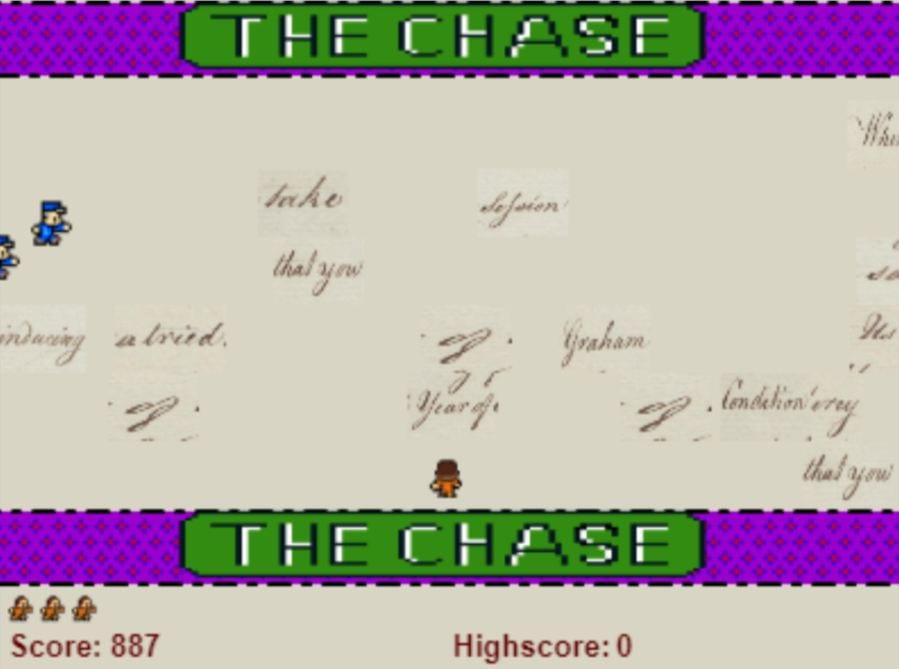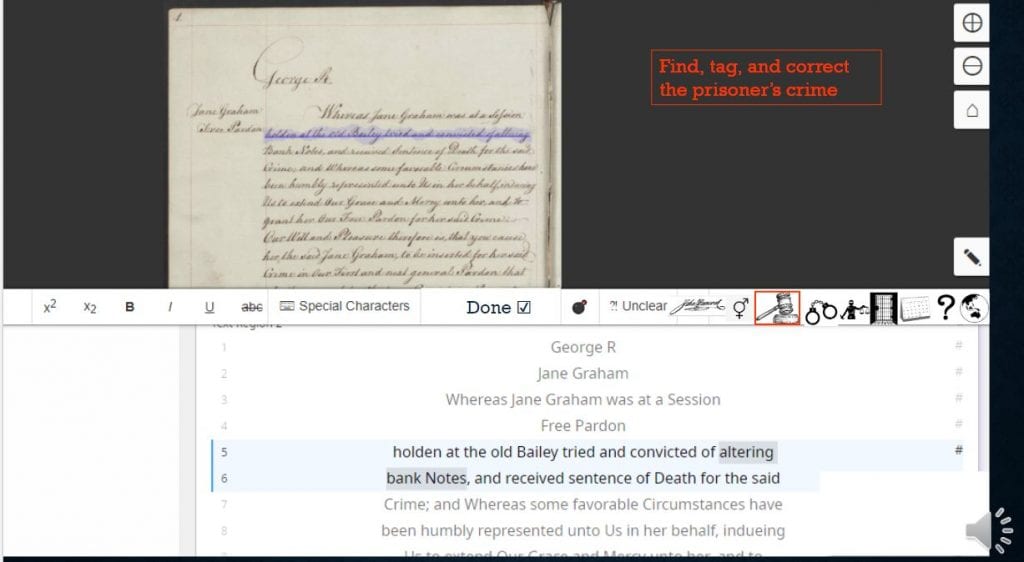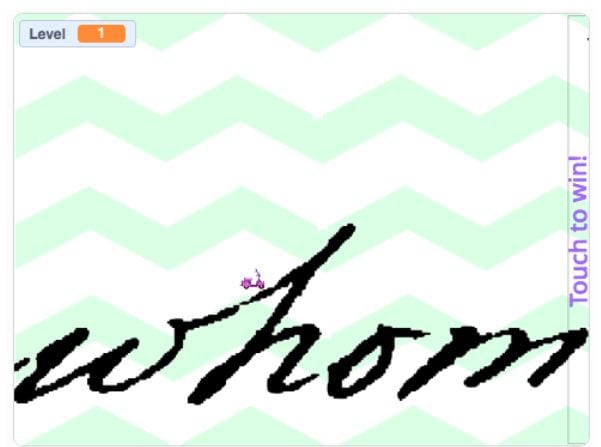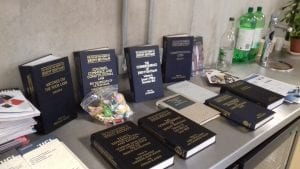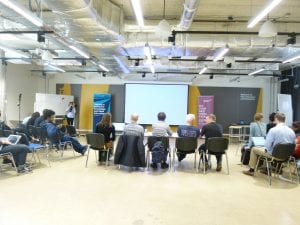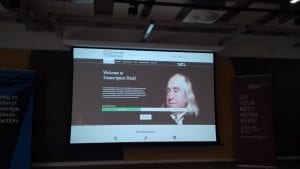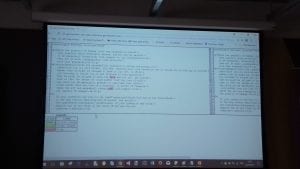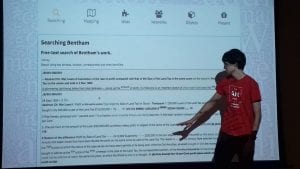Project Update – gamifying the transcription of Bentham’s writings
By uczwlse, on 28 February 2019
In the second volume of his ‘Writings on the Poor Laws’ as part of a discussion of pauper education, Bentham described a game of marbles as ‘little more than a contrivance for killing time’. I’m sure he would have been much more impressed by the inventive digital games devised at our latest event…
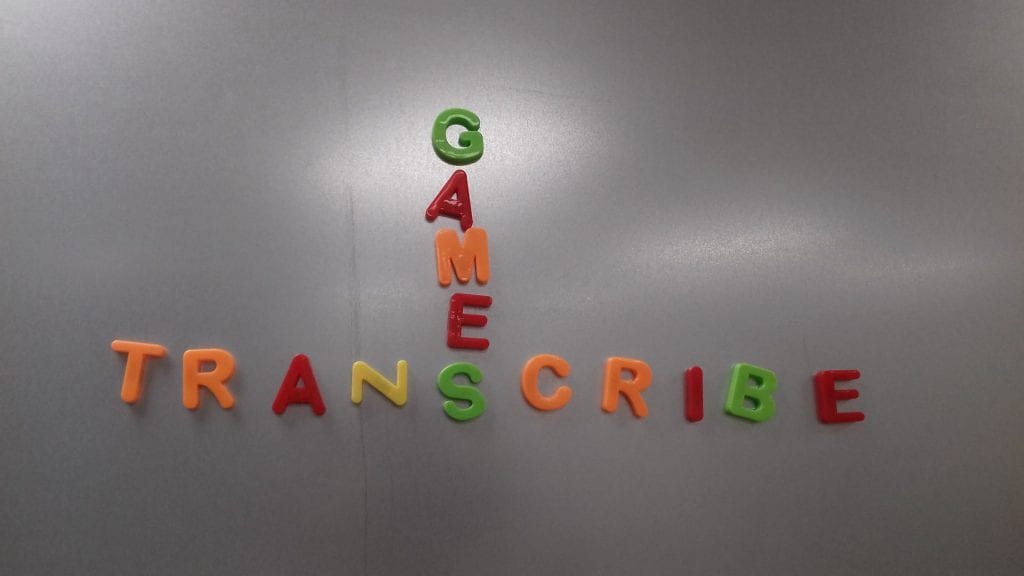 Over the weekend of 23-24 February we collaborated with The National Archives to deliver Hacking the Past: An Archives Game Jam. The event was kindly hosted by UCL Innovation and Enterprise in their fantastic Base KX space.
Over the weekend of 23-24 February we collaborated with The National Archives to deliver Hacking the Past: An Archives Game Jam. The event was kindly hosted by UCL Innovation and Enterprise in their fantastic Base KX space.
For those not familiar with the term, a Game Jam is an event where people work in teams to design and create video games over a short space of time.
As with our 2017 Bentham Hackathon, which was organised with the technology company IBM, this event was focused on experiments with digital technology and historical documents. But this time, the key objective was the gamification of the task of transcription.
The participants were challenged to:
- Create an imaginative game that makes the task of transcribing historical documents fun and efficient
- Based on handwritten documents from The National Archives and the Bentham Collection
The idea was to encourage attendees to invent Games With a Purpose (GWAP) that would combine computer processing with human expertise to make transcription as easy, accessible and entertaining as possible.
We provided document images, metadata and transcriptions generated by both human transcribers and machine learning models via the Transkribus platform for Handwritten Text Recognition.
The gamification objective is particularly relevant for Transcribe Bentham because the work undertaken by our volunteers is quite difficult and time-consuming. If transcribing Bentham became more fun, it is likely that more people would take part and our transcription rate would increase. This would contribute significantly to the Bentham Project’s wider mission of publishing the entirety of Bentham’s Collected Works.
On the morning of Saturday 23 February we welcomed about 40 attendees, along with supporting staff from The National Archives and UCL. We were also lucky to have two Transcribe Bentham volunteers (Gill Hague and Annie Brindle) taking part.
Introductory presentations covered the rationale for the challenge, the work of UCL Centre for Digital Humanities and a summary of the available documents from The National Archives and the Bentham Collection (held at UCL Special Collections and The British Library).
Then it was time for the hacking to begin! Participants joined together in teams and spread out across the venue. Fuelled by Coca Cola, cookies and the occasional piece of fruit, they worked for more than 13 hours to design and develop their games. Staff from The National Archives offered inspiration to the teams with a workshop on palaeography and the Twine storytelling software.
The Game Jam culminated in a showcase where each team presented their game. I was privileged to sit on the judging panel alongside Mark Bell from The National Archives and Rob Miles from The British Library. And we had a tough job of judging the creative results!
Ultimately, the winning team was The Chase. This team created a game for PC and mobile where players are on the run from the police and have to transcribe documents from The National Archives to solve crimes from the past. The game was a reworking of the 1980s arcade game Frogger, mixed with the TV game show ‘The Chase’. Handwritten words float across the screen and players have to jump onto each word to transcribe it, whilst avoiding the oncoming police officers. The game had difficulty levels, a scoring system and a workflow for using transcripts as data for machine learning. This game was imaginative, useful and fun and captured the attention of all of us judges.
The other teams presented the following inventive games…
Sébastien Brisbois
Participating and presenting live on Skype from Strasbourg, Sébastien designed a game to train people to read Bentham’s handwriting by asking them to transcribe individual letters. He used Phaser software to create real game play based on the transcription of one word.
Mercy
As a player of this game you become a black cat living in a Victorian prison, transcribing and tagging prisoner records from The National Archives. This team created a WordPress site for their game and platform game play using flowlab and the Transkribus web interface. Players improve automated transcriptions and create useful metadata for the archives.
Aspretto
This team constructed a sophisticated proof-of-concept for a mobile game called ‘Bentham’s Kitchen’. It was described as a mix of the dating app Tinder and the language learning program Duolingo – a curious combination! Players try to escape Bentham’s Panopticon by impressing the prison guard with a delicious meal. They collect ingredients and recipes from Bentham’s Prison Cookbook as rewards for their transcriptions. The app had various difficulty levels that involved validation and correction of automated transcriptions from Transkribus, as well as transcription from scratch.
Supertechs
This team was a group of young people from a coding club in Essex. Their game ‘Scribe Kingdom’ tasked players with killing evil demons who were holding onto historical documents. Players collected coins by completing transcriptions and could open up access to mini games like hangman or a crossword. The team worked with p5.js, HTML and JSON.
Annie Brindle
Annie presented her idea of ‘Transcription Ready’, drawing on her experience as a Transcribe Bentham volunteer. In this game transcription was linked to quiz questions drawn from the content of Bentham’s manuscripts, which could be created by both subject experts and the player community. She also created a stop-motion video of a play dough Bentham envisaged as a little reward for transcribers.
Video credit: Annie Brindle
Jorge Worje
Jorge Worje is a forgetful wizard trying to protect his castle and he needs help to read his spells in order to fight off monsters. This team created a game using Unity where players corrected machine-generated transcriptions of documents from The National Archives, whilst being bombarded with incoming monsters. Survive as long as you can!
Canterbury
This team came up with an inventive game called ‘Trackscribe’, where players received a short and sweet pay-off for their transcription work. After four words have been transcribed, the player gets the chance to ‘ride’ the loops of an image of a handwritten word, with a bike icon. A demo built in Scratch showed how satisfying this reward could be!
My fellow judges and I agreed that everyone had put an enormous amount of effort and thought into their games. The Chase team went away with a lot of pride and a swag bag of books and goodies from The National Archives.
As with our 2017 Hackathon, this event provided a lot of food for thought for the future of Transcribe Bentham. Now that we have migrated our online Transcription Desk to UCL servers, we are in a good position to consider funding applications that will help us make transcribing Bentham more enjoyable and productive.
If you’re interested in playing some of these games, The National Archives have made a showcase of all of the entries:
You can also catch up with the event on Twitter – check out #TranscribeGames
A big thank you goes out to everyone who took part in our first Game Jam. I would also like to thank my co-organiser, Francesca Mackenzie at The National Archives as well as the staff from The National Archives and UCL who supported us.
 Close
Close


